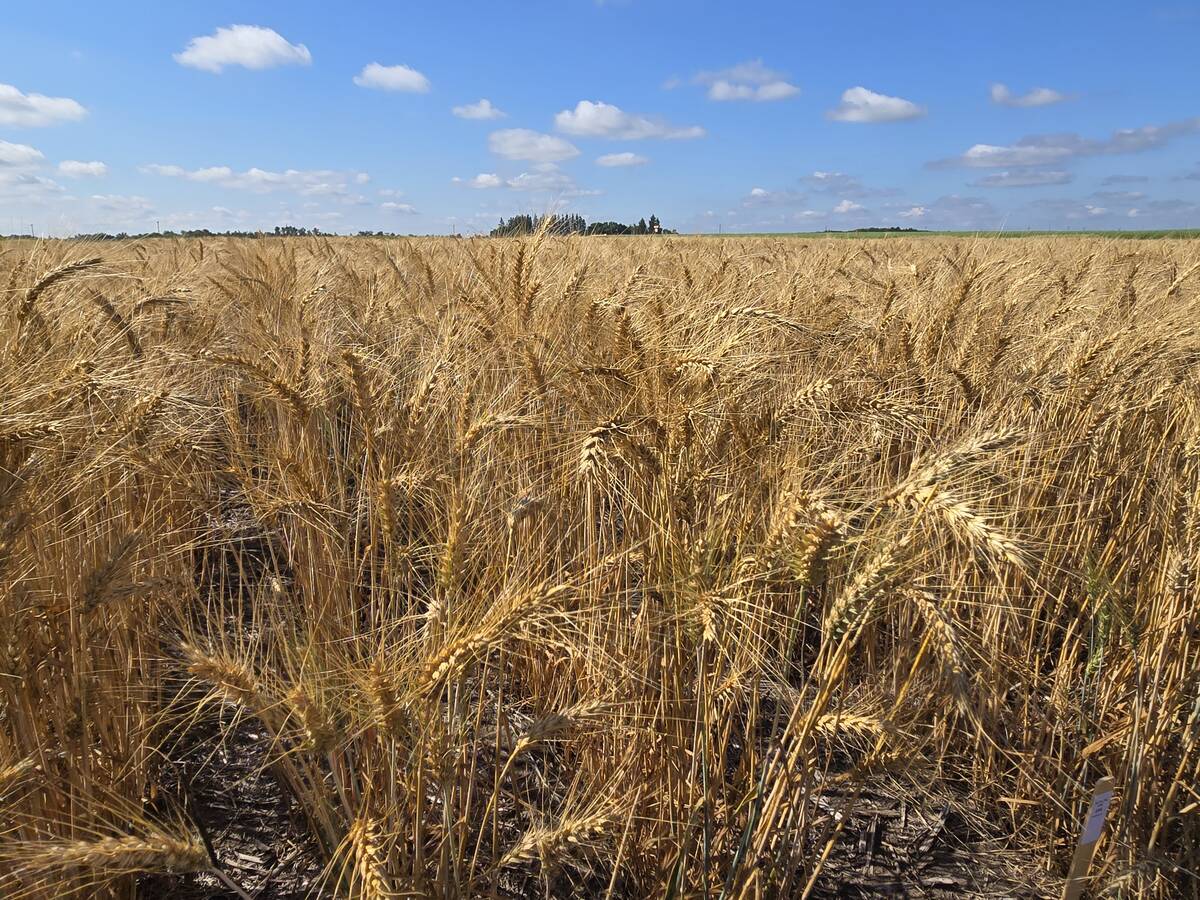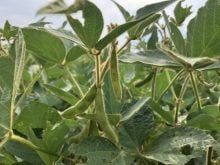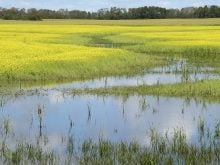BALDWINTON, Sask. – On the surface, little has changed on the Saskatchewan farm where federal authorities say Canada’s first domesticBSE case was born.
The McCreas are putting a crop in the ground and planning their finances for another season, as they have every spring for 41 years.
Mel McCrea, in his role as reeve of the Rural Municipality of Hillsdale, still discusses the debate over education property taxon farmland.
Wife Betty prepares lunch and casts an eye out over the corrals and small pasture where a few black heifers graze on short spring grass.
Read Also

Fall rye hits record high in Manitoba
Winter cereals 2025: More Manitoba fields grew fall rye in 2025 than ever before, but winter wheat slipped and, while spring stand survival was good, drought took its toll
Trevor, their son and business partner, is seeding some of the 2,000 acres they will plant this season.
But it’s what they are not doing this spring that shows how much has changed for the McCreas since federal authorities arrived at their farm near Baldwinton one year ago and ordered the quarantine, destruction and testing of their cattle.
For one thing, there is no pressure to fix fences this year. So far they have bought only 28 heifers. A year ago, when the authorities came calling, they had 247 animals on the farm, including 70 purebred Black Angus cows.
Trevor has more land to seed this season after adding 320 acres to help make up for his share of the lost cattle. He will also custom sow 900 acres for a neighbour.
“March was a hard month. For the first time in my life I haven’t spent it calving. I’ve never slept that much in March. Sleep is overrated,” said Trevor, who spent much of the winter working at a local welding shop.
“I guess I just tried to put the whole thing out of my mind. Just so a guy could carry on, I think.”
Betty spends less time tending cattle on her all-terrain vehicle and has no newborn calves to coax into the world this year.
“Sometimes I forget,” she said.
“I cast my eyes out there to the corrals and kind of jump. There’s no cattle. Where are the cattle? Out? Then in a split second, you remember.”
Mel has no early morning chores to rise for and instead will concentrate on putting in the crop with Trevor.
“You spend your time trying to decide what to do. It’s too late for me at 66 to get back into purebreds. It wouldn’t make sense …. You spend 41 years building up a purebred herd. You can’t just buy some more animals and sell their offspring as your (purebred) cattle,” he said.
“Our farm was designed to operate with purebreds, commercial animals and grain. Now it is all out of balance.”
Betty’s farm records helped authorities trace the BSE-infected cow and the feed that the Canadian Food Inspection Agency blames for the infection.
CFIA suspects that a calf feed supple-ment fed on the McCrea farm in the spring of 1997 infected the animal born there and possibly also infected an Alberta-born dairy cow found in the United States last December.
“It’s funny, you know,” Betty said. “We did everything you are supposed to do as farmers when it comes to arranging your affairs. We were careful, we kept records, we planned it out, how to arrange for succession when we passed on. You name it. And then wham, it’s all up in air.”
After the CFIA confiscated and destroyed their cattle, the McCreas were compensated for the loss at rates determined in an existing federal formula, which Mel called heavily flawed, especially when combined with federal tax laws.
“We’ve got one season to make up our minds about whether to invest in more cattle or pay the government tax on the whole herd as if it were all just straight income,” he said.
“They tell you it’s two years, but we got paid (last fall) and by this January we need to decide what to do or have it taxed back.”
Added Betty: “It might sound good, until you actually figure out you can’t replace your best cows for $2,500.”
The McCreas said they and other producers whose animals were taken during the BSE investigation need an additional year “to see what is going to happen in the Canadian cattle industry.”
Trevor said he will probably buy cattle this year to avoid a big tax bill.
After being at the centre of the BSE storm and talking to politicians, industry leaders and veterinary investigators, Trevor said the family has developed strong opinions about the future of the business.
“(The BSE crisis is) an example of why we need to look at the (North American Free Trade Agreement),” he said.
“We need to be able to make countries accountable for their actions. If the border being closed is based on science, then it should be open by now. The U.S. has a federal election of some sort every two years. That means they are forever using it as an excuse to attack Canadian trade.”














